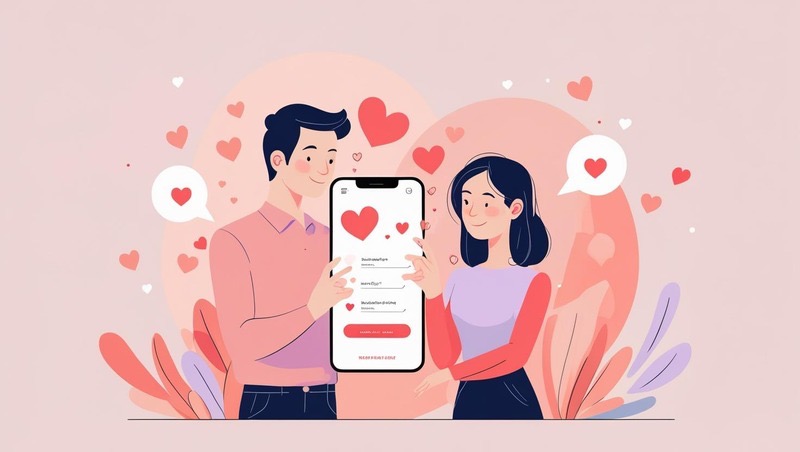
How to Avoid Getting Ghosted While Dating Online
Ghosting—when someone suddenly cuts off communication without explanation—can leave you confused, hurt, and wondering what went wrong. It’s become all too common in online dating, where connection is often just a swipe away. But you’re not powerless. If you’re tired of being ghosted and want to form more meaningful relationships, there are strategies you can use to minimize the chances of it happening.
In this blog, we’ll break down why ghosting happens, what signs to watch for, and how to keep conversations engaging and respectful—so your chances of building real connections improve dramatically.
Table of Contents
- Why Ghosting Happens in Online Dating
- The Psychology Behind Ghosting
- Common Red Flags Someone Might Ghost You
- How to Communicate Clearly from the Start
- Keeping the Conversation Meaningful
- Balancing Vulnerability and Self-Respect
- What to Do If You Sense They’re Pulling Away
- How to Ghost-Proof Your Profile
- When You’ve Been Ghosted—How to Respond
- Final Thoughts: Creating Healthier Online Dating Habits
- FAQs
Why Ghosting Happens in Online Dating
Online dating opens the door to endless options, which can create a “grass is greener” mentality. Ghosting often occurs when someone:
- Feels overwhelmed by the number of matches
- Isn’t emotionally mature enough to communicate openly
- Wasn’t genuinely interested in the first place
- Struggles with confrontation or disappointing others
A 2023 study from Pew Research Center found that around 30% of online daters report being ghosted, showing how normalized the behavior has become in digital courtship.
The Psychology Behind Ghosting
Ghosting is not just rudeness—it often stems from avoidance behavior. Some people ghost to escape discomfort. According to psychologist Dr. Jennice Vilhauer, ghosting is a form of emotional self-protection, especially for those with insecure attachment styles.
It’s not about you—it’s about their inability to handle the situation maturely.
Common Red Flags Someone Might Ghost You
Watch out for early signs that suggest ghosting is likely:
- Slow replies that get progressively worse
- Overly vague plans or excuses to avoid video chats or meetups
- They never ask follow-up questions or show curiosity
- They disappear for hours or days without explanation early on
If they’re treating you like a placeholder, they probably are.
How to Communicate Clearly from the Start
Setting the tone early helps weed out flaky people. Here’s how:
- Be upfront about what you’re looking for—casual, serious, exploring, etc.
- Ask them directly: “What are you hoping to get out of being on here?”
- Match communication energy. If they give short answers or don’t reciprocate, pull back.
Honesty up front discourages people who are only there for surface-level attention.
Keeping the Conversation Meaningful
Surface-level chats (like “How’s your day?”) fizzle fast. To build real connection:
- Ask deeper questions like: “What’s a value you live by?” or “What’s something you’re proud of this year?”
- Reference past things they said to show you’re genuinely listening
- Share stories, not just facts—this makes you more relatable and memorable
Sites like Psychology Today support that engagement and authenticity are key predictors of long-term connection.
Balancing Vulnerability and Self-Respect
Opening up too fast can trigger some people to ghost out of discomfort. But being completely closed off also prevents connection. Strike a balance:
- Be emotionally available, not emotionally dependent
- Don’t share your trauma story on day one
- Let them earn deeper layers of who you are
Remember: you’re not trying to “win” someone—you’re filtering for compatibility.
What to Do If You Sense They’re Pulling Away
If replies get slower or colder:
- Give them space for a day or two—don’t panic-text.
- Check in once: “Hey, just wanted to see if you’re still feeling the vibe here?”
- If they don’t respond, move on.
Over-pursuing usually pushes them further away and lowers your self-respect. Let them go with grace—and keep your dignity intact.
How to Ghost-Proof Your Profile
Your dating profile is your digital handshake. Make it inviting, confident, and clear.
Tips:
- Use recent, flattering photos that show your face and lifestyle
- Add a short, witty line in your bio that sets you apart (“Recovering overthinker looking for deep chats and ugly laughs”)
- State your intentions—serious or casual, no shame either way
The better your profile, the more likely you’ll attract people who take dating seriously.
When You’ve Been Ghosted—How to Respond
Being ghosted hurts, even when you saw it coming. Here’s what not to do:
🚫 Don’t beg for closure
🚫 Don’t send angry or passive-aggressive messages
🚫 Don’t internalize it as a reflection of your worth
Instead:
✅ Accept it and block them if it brings you peace
✅ Vent to a friend—not them
✅ Reflect on any patterns without blaming yourself
Sites like Verywell Mind offer practical advice for emotional recovery post-ghosting.
Final Thoughts: Creating Healthier Online Dating Habits
Ghosting may be common, but it’s not inevitable. By being intentional, self-aware, and setting clear boundaries, you can drastically lower your chances of getting ghosted. Stay true to your values, communicate openly, and don’t chase people who disappear.
Ultimately, ghosting says more about them than it does about you. And every person who ghosts you is one step closer to someone who won’t.
FAQs
Q: Is ghosting always intentional?
A: Not always. Some people shut down emotionally or get overwhelmed, but the result still leaves the other person in the dark.
Q: Should I call someone out for ghosting me?
A: Only if it helps you emotionally. Don’t expect closure—say your piece, then move on.
Q: Can ghosting happen in serious relationships too?
A: Yes. Ghosting can happen even after weeks of chatting or multiple dates, though it’s less common with deeper emotional investment.
Q: How do I avoid overinvesting too soon?
A: Don’t build a fantasy before someone earns it. Keep your expectations grounded in reality.
Q: What if I’ve ghosted someone before?
A: It happens. Learn from it, and be more intentional with how you handle communication going forward.


